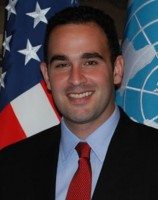
Tax revenue data from Washington and Colorado continue to bring us nothing but good news. After about eighteen months of adult-use marijuana sales, the Centennial State has reeled in more than $117 million in tax revenue. After a year of sales in the Evergreen State, revenues have topped $83 million. Between the two states, over $200 million in marijuana taxes have been raised.
Which begs the question, where’s the $2 billion in social costs from legalized marijuana that were supposed to afflict Washington and Colorado, Kevin?
Kevin Sabet is the nation’s leading anti-marijuana crusader. Back in August of 2012, as the nation awaited legalization votes in three states, Sabet cautioned voters that any tax revenue promises made by the legalizers would easily be overwhelmed by the social costs of legalized marijuana from the “reduced productivity… increased health care costs… accidents… premature illness and death.”
As Sabet put it:
Research uniformly reveals that under legalization, the price of drugs would fall substantially, thereby increasing consumption. Any taxes gained on legal drugs would be quickly offset by the social costs resulting from this increased use: witness how today society receives about $1 in alcohol and tobacco tax revenue for every $10 lost on the social costs of those two legal drugs. Increased drug use means increased costs, including those borne by American businesses as they deal with a high workforce, greater absenteeism and less productivity.
This was not a one-time dire prediction. Sabet’s conjecture that “for every $1 in tax revenue, alcohol & tobacco bring $10 in costs” was a prime talking point of the anti-legalization campaign in 2012. As Sabet’s pal, Patrick Kennedy put it:
For every $1 we collect from state and federal taxes on alcohol and tobacco, we spend $10 to address problems stemming from their use. There is no reason to believe marijuana will pay for itself, either.
Here’s the official position of Project SAM, the group Kennedy and Sabet formed to fight legalization:
Federal excise taxes collected on alcohol in 2007 totaled around $9 billion; states collected around $5.5 billion. Combined, these amounts are less than 10 percent of the estimated $185 billion in alcohol-related costs to health care, criminal justice, and the workplace in lost productivity. Tobacco does not yield net revenue when taxed. Each year, Americans spend more than $200 billion on the social costs of smoking, but only about $25 billion is collected in taxes.
Here’s David Evans, Special Adviser to the Drug Free America Foundation:
The argument that we can tax and regulate marijuana and derive income from it is false. The increased use will increase the multitude of costs that come with marijuana use. The costs from health and mental wellness problems, accidents, and damage to our economic productivity will far out strip any tax obtained.
This isn’t a new scare. In 2009, well before legalization was heating up the national scene, Sabet was making this prediction:
What is rarely discussed, however, is that the likely increase in marijuana prevalence resulting from legalization would probably increase the already high costs of marijuana use in society. Accidents would increase, healthcare costs would rise and productivity would suffer. Legal alcohol serves as a good example: The $8 billion in tax revenue generated from that widely used drug does little to offset the nearly $200 billion in social costs attributed to its use.
In 2010, as Prop 19 was gearing up to legalize California, CNBC posted this unsigned op-ed (I’ll bet it was Sabet):
The additional costs of drug education and rehabilitation combined with the increased social costs associated with increased marijuana use and sale are all greater than the potential revenue gained through legalization.
You’d think that once legalization passed and the sky did not fall in Washington and Colorado, they’d abandon this talking point. But no, here’s Bill O’Reilly, as he interviewed Patrick Kennedy in March 2013 after legalization passed:
I believe the amount of damage being done to Coloradoans in the form of addiction, driving problems, all these social ills will cost that state far more than it’s taking in.
And Dr. Stuart Gitlow, the president of the American Society of Addiction Medicine and a SAM board member in July 2014:
As a society, we will not make money — we will likely lose money, just as we do with tobacco and alcohol. Taxpayers will need to pay more in order to make up for the productivity and illness-related losses that marijuana taxes won’t come close to covering.
Even as recently as November 2014, educational psychologist Marty Nemko was writing in TIME:
When unable to counter the above arguments against legalization, pot activists often shift to arguing that legalization will increase tax revenues. But the aforementioned Obama Administration report states that the additional revenue would be far outweighed by the increased health care costs. For example, that report summarizes a Centers for Disease Control-funded study: “The cost to society of alcohol alone is estimated to be more than 15 times the revenue gained by their taxation.”
So where’s the $2 billion alcohol-and-tobacco-like costs from our $200 million in marijuana tax revenue, fellas? I’ll even accept someone showing a push – $200 million in social costs – and I won’t even factor in all the law enforcement, court, jail, probation, parole, and administrative savings from not ticketing or arresting tens of thousands now-legal cannabis consumers.
How much more money do we have to raise before this talking point is put out to pasture?






